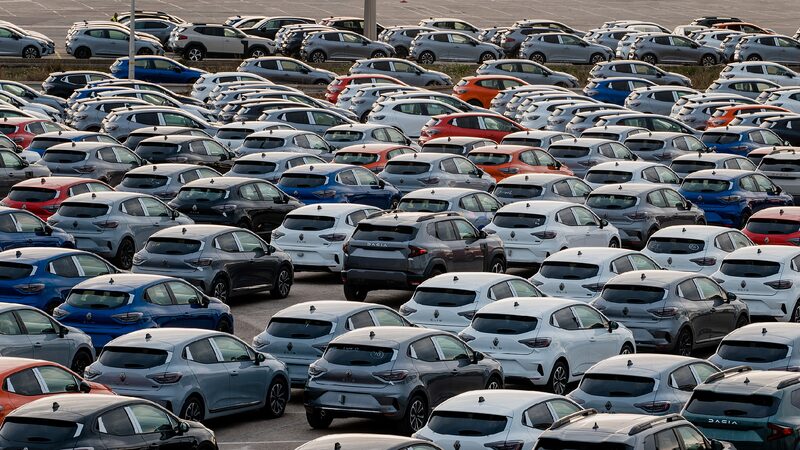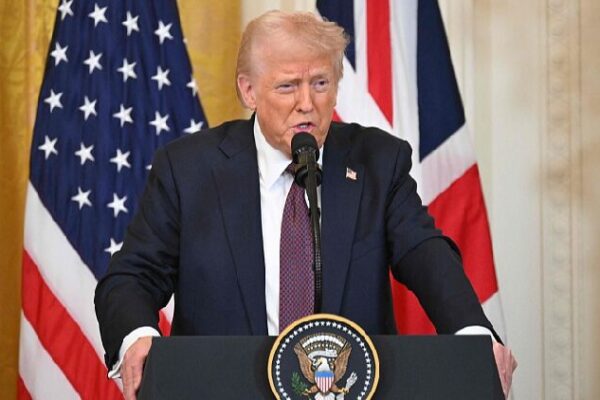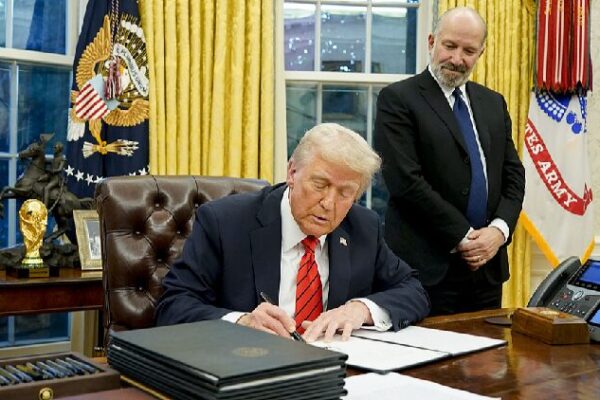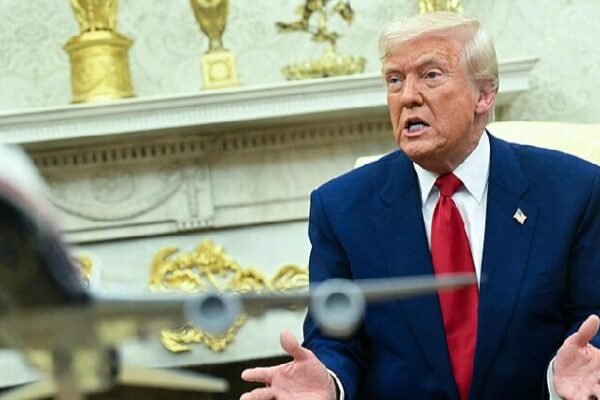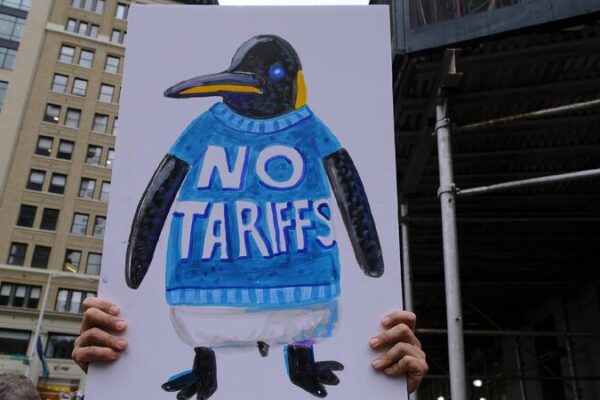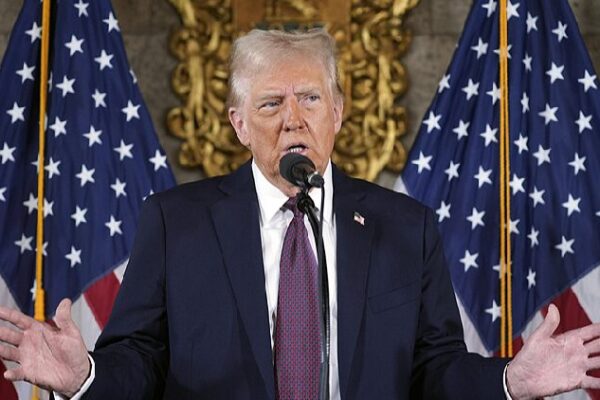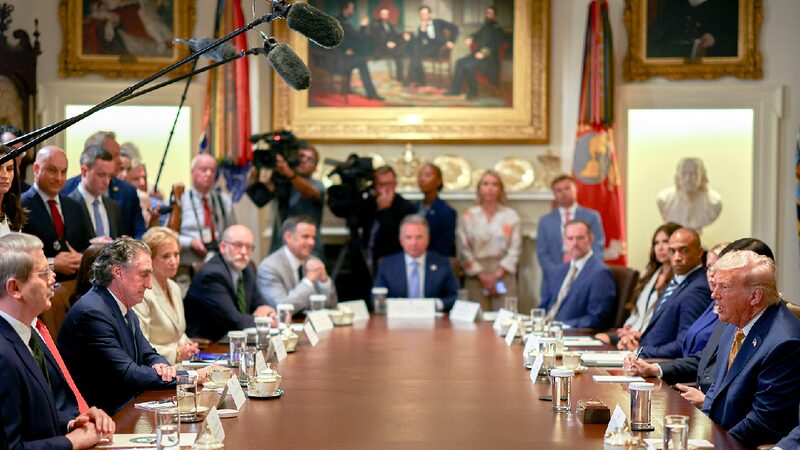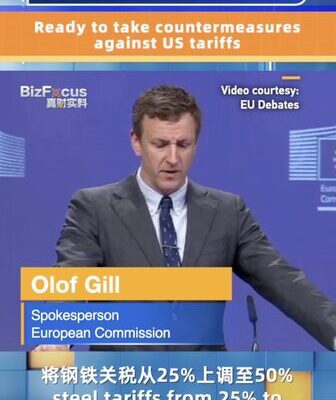Trade tensions between the United States and the European Union are heating up, affecting economies on both sides of the Atlantic. This week, U.S. President Donald Trump announced new tariffs on European imports, and the EU is preparing to strike back.
President Trump’s tariff plan, revealed on Wednesday, imposes a 25% tariff on various European goods, including cars and other products. Speaking at a White House cabinet meeting, he accused the EU of “taking advantage” of the U.S. by blocking American cars and agricultural products.
In response, European Commission spokesperson Olof Gill emphasized that American businesses have greatly benefited from investing in Europe. “By creating a large and integrated single market, the EU has facilitated trade and reduced costs for exporters,” he stated. “As a result, U.S. investments in Europe are highly profitable.”
The European Commission reiterated that the EU would react “firmly and immediately” against unjustified barriers to free and fair trade, especially when tariffs challenge legal and non-discriminatory policies.
Speaking in Washington, European Parliament President Roberta Metsola highlighted the shared values between Europe and the U.S. and cautioned against isolation. She reaffirmed that the EU is ready to respond decisively to unjust trade barriers.
France and Spain echoed the EU’s stance on retaliation, calling for unity in defending Europe’s interests.
French Economy Minister Eric Lombard, following his participation in the G20 finance ministers’ meeting in Cape Town, stated that the EU must protect its interests by taking reciprocal actions. “We need to have a firm and proportionate reaction,” he said.
French Defense Minister Sebastien Lecornu also emphasized the need for a strong response. “The EU must react in the firmest, most immediate, and proportionate way, because that’s how it works,” he told France Info.
Spanish Prime Minister Pedro Sanchez, speaking in the Basque Region, asserted that the EU will defend itself against “unjustified tariffs that threaten our economic sovereignty.” He stressed that the EU is prepared to adopt proportionate measures in response.
Sanchez underscored the EU’s commitment to open trade and cooperation, contrasting it with President Trump’s promotion of isolation. “We will continue seeking collaboration between countries, commercial openness, and a multilateral system that is more important than ever,” he said.
He also rejected Trump’s claim that the EU was “formed to screw the United States,” arguing that many wealthy Americans have benefited “thanks to Europe.”
On social media platform X (formerly Twitter), Polish Prime Minister Donald Tusk echoed Sanchez’s sentiments. He wrote, “The EU was not formed to screw anyone. Quite the opposite. It was formed to maintain peace, build respect among our nations, create free and fair trade, and strengthen our transatlantic friendship.”
Adolfo Urso, Italian Minister of Enterprises, expressed concern over escalating trade tensions. Speaking in Paris, he emphasized the need to avoid a trade war, highlighting that Italy’s export-driven economy is “obviously worried.” He stressed that the West should stay united rather than divided.
However, Italian industrial leaders are calling for a stronger response. Emanuele Orsini, president of the Italian industry association Confindustria, warned that Trump’s tariffs disrupt trade dynamics and threaten European businesses and jobs. “The real goal of the U.S. is the deindustrialization of our continent,” he said. “Europe must change gears: time is up. The measures announced today in Brussels are insufficient,” he added, calling it a “dark hour” for Europe.
Experts warn that escalating trade tensions between major economies like the U.S. and the EU could have ripple effects on the global economy, potentially impacting trade and markets worldwide.
Reference(s):
cgtn.com
